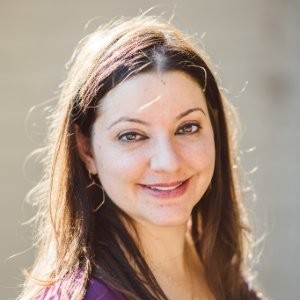
If you’re a New Jersey resident thinking about buying a Tesla Model S, you’d better act fast: You have until the end of the month to purchase the all-electric sedan from the company’s stores in the Garden State. Starting April 1, the luxury electric car maker will not be able to sell cars from its New Jersey stores, according to a ruling made last week by the state’s motor vehicle commission.
New Jersey joins Texas and Arizona in prohibiting car manufacturers from selling vehicles directly to consumers, in favor of having franchised dealerships make auto sales. Tesla does not use dealerships to sell its Model S sedan, but instead, markets it cars online and at company-owned stores.
As to be expected, Tesla CEO Elon Musk was not happy about the New Jersey Motor Vehicle Commission’s recent decision, calling it an attack on technological innovation and consumer choice and “an affront to the very concept of the free market” in a post to the company’s blog on Friday.
According to Musk, auto dealer franchise laws were enacted to prevent instances of car manufacturers pressuring franchisees to sell dealerships back to auto companies at a low price – after the franchisees invested considerable capital in building their businesses. These laws are written reasonably and clearly in most states, Musk wrote on the Tesla blog, but in some states, the law’s language is ambiguous, and the car dealership lobby is trying to use the legislation to compel Tesla to sell its vehicles through their businesses.
Why does the electric car maker chose to bypass dealerships and use a direct sales model? Musk wrote that car dealerships don’t have a vested interest in promoting electric vehicles: Sales of gasoline-powered cars account for nearly all of a dealer’s revenue, while electric car sales currently make up none of its income. Musk pointed to Fisker and Coda as electric car companies that failed in their efforts to market vehicles at traditional dealerships.
In addition, Musk wrote, car dealerships make the bulk of their profit from servicing vehicles, but electric vehicles require far less service than their gas-guzzling counterparts – another disincentive to dealers pushing electric cars to their customers.
Musk also pointed the finger at New Jersey Gov. Chris Christie, already embroiled in the George Washington “Bridgegate” scandal, who he said went back on previous commitments to bring the proposed ruling to a vote in the state legislature. But Christie’s office disagreed, telling the Huffington Post, “Since Tesla first began operating in New Jersey one year ago, it was made clear that the company would need to engage the legislature on a bill to establish their new direct-sales operations under New Jersey law."
Supporters of the motor vehicle commission’s decision, including the New Jersey Coalition of Automotive Retailers, say the policy doesn’t just protect auto dealers, but also safeguards consumers. Manufacturers see warranty and safety recalls as a headache, Coalition President Jim Appleton told ABC News, but dealerships are incentivized to report warranty and safety recalls to consumers because they are paid to perform recall services by car companies.
Will a ban on Tesla’s direct sales in three states – and a proposed ban in New York – put a damper on the Palo Alto, Calif.-based company? In the Internet age, you can buy anything online – and the same holds true for a Model S. Tesla’s New Jersey stores will cease car sales on March 30 and then become car-viewing “galleries,” but electric car enthusiasts in the Garden State can buy a Tesla anytime online. With a car battery “Gigafactory” and new car models in the works, it is unlikely that anything can stop Telsa’s momentum – or Musk’s so-crazy-they-just-might-work solutions to tricky problems.
Image credit: Tesla Motors
Passionate about both writing and sustainability, Alexis Petru is freelance journalist based in the San Francisco Bay Area whose work has appeared on Earth911, Huffington Post and Patch.com. Prior to working as a writer, she coordinated environmental programs for Bay Area cities and counties. Connect with Alexis on Twitter at @alexispetru

Passionate about both writing and sustainability, Alexis Petru is freelance journalist and communications consultant based in the San Francisco Bay Area whose work has appeared on Earth911, Huffington Post and Patch.com. Prior to working as a writer, she coordinated environmental programs for various Bay Area cities and counties for seven years. She has a degree in cultural anthropology from UC Berkeley.














